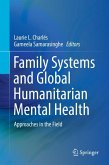The book provides a comprehensive review of mental health in refugees by discussing its multiple dimensions, and analyzing epidemiology, etiology, and culturally adapted assessment and treatment. Key topics include why certain refugees cope successfully with traumatic experiences while others do not, and the biological, psychological, and social processes underlying posttraumatic stress disorder, common mental disorders, substance abuse and personality disorders.
The text examines topics such as complexities of diagnosis, treatment, and recovery for refugees. Furthermore, the roles of culture, social support, and mental health workers in the process of overcoming mental health problems in refugees are discussed. Together, the chapters provide an in-depth examination of the current understood causes, and impacts of mental health problems and treatment of refugees to inform future work in the field. The book gives its readers a solid basis for understanding mental health problems of refugees and sets out to present practitioners with a state-of-the-art summary of all the latest developments and practical guidance. Furthermore, this book provides the practitioner with instructions on how culturally adapted treatments can be used not only with adults, but also with children and young people to help the practitioner to prepare for working with this difficult client group.
Drawing from a range of different fields of study, this text will appeal to readers across psychological, mental health, medical, and academic disciplines.
Hinweis: Dieser Artikel kann nur an eine deutsche Lieferadresse ausgeliefert werden.
The text examines topics such as complexities of diagnosis, treatment, and recovery for refugees. Furthermore, the roles of culture, social support, and mental health workers in the process of overcoming mental health problems in refugees are discussed. Together, the chapters provide an in-depth examination of the current understood causes, and impacts of mental health problems and treatment of refugees to inform future work in the field. The book gives its readers a solid basis for understanding mental health problems of refugees and sets out to present practitioners with a state-of-the-art summary of all the latest developments and practical guidance. Furthermore, this book provides the practitioner with instructions on how culturally adapted treatments can be used not only with adults, but also with children and young people to help the practitioner to prepare for working with this difficult client group.
Drawing from a range of different fields of study, this text will appeal to readers across psychological, mental health, medical, and academic disciplines.
Hinweis: Dieser Artikel kann nur an eine deutsche Lieferadresse ausgeliefert werden.








